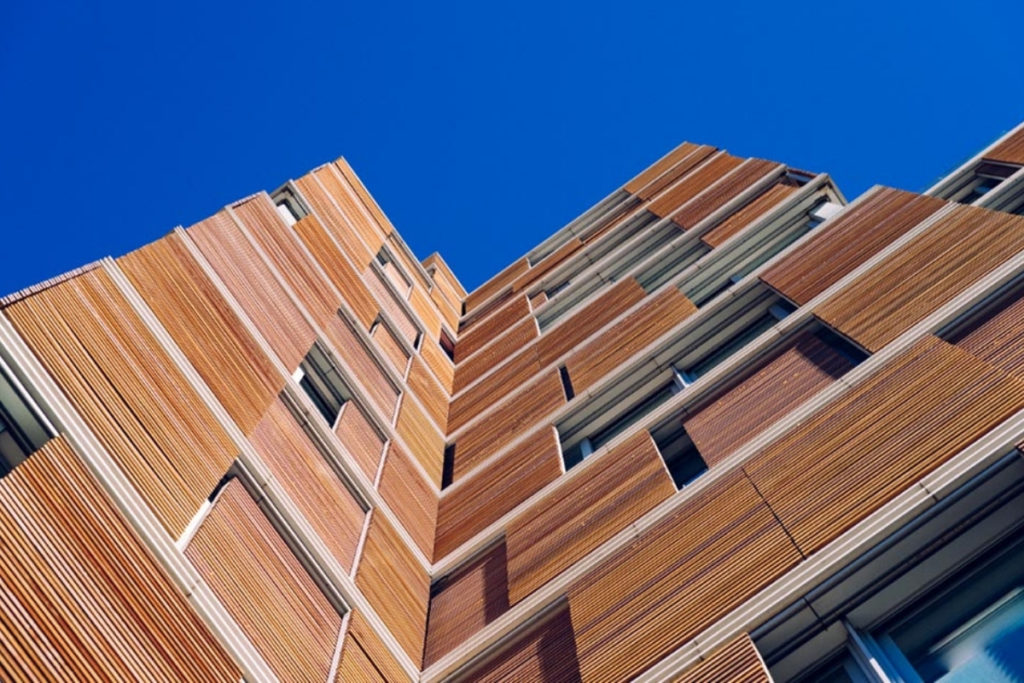This media release is about Combustible Cladding in NSW Strata.
Landmark Ruling: Relevant for Any Owners Corporation with Combustible Cladding on Their Building.
On 18 October 2021, the NSW Supreme Court delivered a landmark judgment in the case of Taylor Construction Group Pty Ltd v The Owners – Strata Plan No. 92888 [2021] NSWSC 1315, confirming that biowood cladding is combustible cladding that poses a risk of fire spread between levels on the façade of an apartment building. Muellers represented the successful owners corporation in NCAT and also in the Supreme Court – a WIN for all owners corporations.
Senior Lawyer, Faiyaaz Shafiq, JS Mueller & Co Lawyers, said, “The outcome of the case represents a major win for owners corporations strengthening the basis for claims by owners corporations against builders and developers who have installed combustible cladding on their buildings.”
“I have no doubt it will see a marked shift in the way in which builder and developers respond to combustible cladding claims”, said Faiyaaz.
The owners corporation initially commenced proceedings in NCAT against the builder and developer seeking orders that biowood cladding installed on the façade of its building be replaced or compensation be paid to cover the cost to replace the cladding. The owners corporation claimed that the cladding was combustible or created an undue risk of fire spread in breach of the statutory warranties under the Home Building Act 1989 because it did not comply with the Building Code of Australia and was not fit for its purpose.
NCAT ordered that the defective biowood cladding be rectified by the builder and developer. The builder/developer appealed NCAT’s findings to NCAT’s Appeal Panel which dismissed the appeal.
The builder/developer then appealed to the NSW Supreme Court.
The NSW Supreme Court on 18 October 2021 gave a comprehensive judgment dismissing the appeal. In doing so, the Court accepted the owners corporation’s arguments that:
- biowood cladding is combustible;
- there is a risk that fire will spread beyond the floor of origin because the material from which the biowood is made will support fire spread between the levels of the building;
- there was evidence from the fire safety engineer of the owners corporation that there is an undue risk of fire spreading due to the biowood;
- there was no evidence to support the contention of the builder/developer that a slower rate of fire spread does not present an undue risk in comparison with a higher rate of spread; and
- there was evidence that sprinklers or any other fire safety measure would have no relevance to external fire spread.
Furthermore, the Court also agreed with the owners corporation’s submission that combustible cladding is not fit for purpose which is one of the categories of the statutory warranties under the Home Building Act 1989.
The Court has reaffirmed the view that the fundamental fire safety requirement for a class 2 apartment building requires external walls to be non-combustible, and cladding installed in a multi-storey apartment building that does not comply with the BCA is not suitable for the purpose for which it is used.
The Court’s judgment confirms the view the owners corporation always held that biowood poses an unacceptable fire safety risk.
The Court’s judgment is a landmark ruling that is relevant to any owners corporation that has combustible cladding on its building. The ruling strengthens the basis for claims by owners corporations against builders and developers who have installed combustible cladding on their buildings and should see a marked shift in the way in which builders and developers respond to those claims.
If you or your owners corporation require advice about combustible cladding, please contact us.
Note: Faiyaaz Shafiq of JS Mueller & Co Lawyers acted for the successful owners corporation and was assisted by barristers Tom Davie and Anita Power of Queen’s Square Chambers.
Faiyaaz Shafiq JS Mueller & Co Lawyers E: faiyaazshafiq@muellers.com.au P: 02 9562 1266
This post appears in Strata News #521.
If you have a question about combustible cladding or something to add to the article, please leave a comment below.
EmbedDisclaimer: The information contained in this article is provided for your personal information only. It is not meant to be legal or professional advice nor should it be used as a substitute for such advice. You should seek legal advice for your specific circumstances before relying on any information herein. Contact JS Mueller & Co for any required legal assistance.
JS Mueller & Co Lawyers has been servicing the strata industry across metropolitan and regional NSW for over 40 years. We are a specialist firm of strata lawyers with in depth and unmatched experience in, and comprehensive knowledge of strata law and levy collection.
Read next:
- NSW: Combustible Cladding Taskforce – Who is Eligible?
- NSW: NCAT Confirms Biowood Cladding is Combustible and Must Be Removed!
- NSW First Cladding Decision
This article has been republished with permission from the author and first appeared on the JS Mueller & Co Lawyers website.
Visit our Strata Building Defects OR NSW Strata Legislation
Looking for strata information concerning your state? For state-specific strata information, take a look here.
After a free PDF of this article? Log into your existing LookUpStrata Account to download the printable file. Not a member? Simple – join for free on our Registration page.
